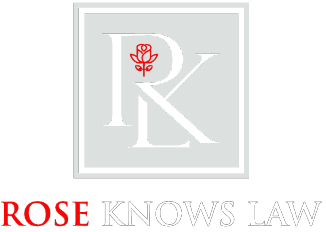The open road, freedom, and motorcycles have long been synonymous. However, this thrilling means of transportation has its dangers, especially regarding accidents. Due to the relative lack of protection compared to cars, motorcycle accidents may cause severe injuries or even fatalities. Utilizing helmets is one essential safety step that might also greatly influence accident claims. Different jurisdictions enforce different motorcycle helmet rules, and whether or not a rider is compelled to wear a helmet can significantly impact their legal rights and potential financial compensation in the event of an accident.
You may have concerns about how this may affect your accident claim if you or a loved one were hurt in a motorcycle accident without a helmet. So, what are motorcycle helmet laws in Texas, and how could breaking them hurt your motorcycle accident claim?
Common Causes of Motorcycle Accidents
Motorcycle accidents result from various factors, mostly negligence by other motorists or the recklessness of the motorcyclists. Some common causes of motorcycle accidents in Texas include:
- Reckless driving by other motorists
- Impaired or distracted driving
- Speeding
- Lane splitting
- Poor road conditions
- Inclement weather
The degree of injuries incurred in motorcycle accidents may be severe due to these inherent risks, underscoring the importance of safety precautions like helmets.
Is It Illegal to Not Wear a Motorcycle Helmet in Texas?
Regardless of age, all motorcycle riders are required by some states’ helmet legislation to wear helmets. However, any Texas motorcycle driver over the age of 21 does not have to wear a helmet if they meet one of the following two criteria:
- They have completed a motorcycle safety course
- They have health insurance that can cover accident injuries
Riders must be informed of the applicable helmet regulations in their area because failure to do so may result in costly legal and financial repercussions. If you’re a motorbike enthusiast, we highly recommend you always use a helmet for your safety—no matter how safely you ride.
Why Should You Wear a Helmet?
It is impossible to stress how much safer it is to ride a motorcycle while wearing a helmet. If you use a helmet, you might be able to avoid serious or fatal injuries in an accident:
- Helmets are made to deflect impact and guard the head against severe injuries in the event of a collision. Wearing a helmet dramatically lowers the chance of suffering a brain injury, a skull fracture, or other potentially fatal injuries.
- In addition to improving overall visibility and reducing distractions, a well-fitted helmet may protect the rider’s face and eyes from flying objects, wind, and insects.
If you weren’t wearing a helmet when the accident happened, you could be deemed partially at fault when filing an accident claim following a motorcycle accident.
Can You Still Seek Compensation if You Are Found to Be Partially Liable for the Accident?
Comparative negligence in Texas is a legal theory used in several jurisdictions to calculate accident claim settlement amounts. Comparative negligence recognizes that various parties may have caused an accident to varying degrees.
Even if the motorcycle rider is determined to have contributed to the accident in some way, such as by breaking motorcycle laws, they may still be eligible for compensation. Compensation could be lowered to account for their liability in causing the accident. In these situations, wearing a helmet may be important. The opposing party may contend that if sufficient safety precautions had been taken, the rider’s head injuries might have been less severe or avoided altogether.
What if the Injuries Sustained in the Accident Were Not Head Injuries?
While helmets are primarily designed to protect the head, motorcycle accidents may lead to various types of injuries throughout the body—broken bones, spinal cord injuries, internal organ damage, and road rash. Not wearing a helmet may not directly impact claims related to these injuries.
Can Not Wearing a Helmet Affect Your Motorcycle Accident Claim?
In jurisdictions where a helmet is legally required to be worn, breaking that rule might significantly impact an accident claim. Insurance companies and litigants in court may assert that the rider’s lack of helmet use constitutes carelessness and disregard for personal safety. This may undermine the rider’s position during negotiations and judicial proceedings, possibly resulting in lower compensation or even the denial of a claim.
It’s crucial to remember that even in jurisdictions where wearing a helmet is not required, like Texas in some instances, a rider’s decision to forego one may still be used against them in court if it can be demonstrated that it could have averted or lessened their injuries.
Contact a Skilled Motorcycle Accident Attorney Today
You may still be eligible for financial compensation if you weren’t wearing a helmet during the motorbike accident in Texas. If you are worried that not wearing a helmet could affect your motorcycle accident claim, contact our skilled motorcycle accident attorney, who is well-versed in the strategies employed by insurance companies to shift liability.
You’d want someone with vast experience handling your claim and litigation to help walk you through the legal process while getting you the compensation you deserve. Dale R. Rose has the experience and integrity to represent you in your case. To learn more about your options and receive personalized guidance, schedule a free initial consultation by calling our office at (972) 634-ROSE (7673) or filling out our contact form. With our experience in personal injury law, you can trust that you’ll work with a capable legal team to pursue just compensation for your losses and injuries.
